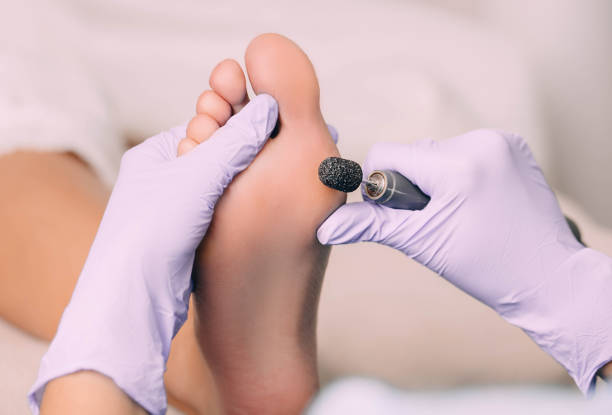RCPod updates its response to the NHS England Long Term Workforce Plan

RCPod responds in detail to the plan and the ramifications it may have for the podiatry profession.
Following the publication of NHS England’s Long Term Workforce Plan, the Royal College of Podiatry (RCPod) put out its initial response. The RCPod has now had time to consider it in greater detail and the ramifications it may have for the profession, podiatrists, support workers, and ultimately on patient care.
Staffing shortfalls
The RCPod has recently completed projects to address accreditation of the support workforce. This accreditation project will allow individuals to map their knowledge, skills, and behaviours to support worker levels of practice. Training providers will also be able to map programmes and seek accreditation. Accredited programmes may also allow podiatry undergraduates to work within the podiatry support workforce during their studies. This could see more support workers for the NHS but is reliant on buoyant numbers on undergraduate and pre-registration Masters programmes, and sufficient numbers of clinical educators and adequate space to train these individuals.
The plan mentions the professions where the international scope of practice differs from that in the UK. It highlights podiatry as such a profession where international recruitment is not an option. The profession has been working hand in glove with the former Health Education England and the HCPC to recruit podiatrists from Spain and South Africa, whose countries have a surplus of podiatrists.
Podiatry education and training
The plan states that AHP training places will increase to 17,000 by 2028/29. This is a modest increase across 14 professions in comparison to increases for medicine and nursing. It is made explicit in the plan that apprentices are expected to comprise: "at least 80% for operating department practitioners, therapeutic radiographers and podiatrists." The plan goes on to state that: "for podiatry, we propose expanding apprenticeships significantly, so they become the main entry route into the profession." This is an extraordinarily high proportion and will have a significant impact on NHS podiatry teams, who are already short-staffed, and who will need to provide appropriate supervision.
At a time when NHS services are already over-stretched and CPD is not being prioritised, we would question how Trusts will manage to train these additional apprentices. There are also concerns regarding the viability of traditional BSc (Hons) Podiatry and pre-reg Masters routes if the direction of travel is so heavily focussed on apprentices, as many of the HEIs that offer undergraduate podiatry programmes do not offer an apprenticeship route.
The plan states that: "… in podiatry services, we will train support workers to take on podiatry assistant practitioner roles working under the direction of a podiatrist’s treatment plan." We have still to see the level of take-up of support worker roles by Foot Health Practitioners.
Supporting traditional undergraduate podiatry programmes to map to the Foot Health Standards is also pragmatic. At the University of Huddersfield, this is already the case to enable students to take up support worker positions during their training, or if a student is unable to complete their podiatry training.
The plan states there are proposals to introduce a single, consistent policy for funding excess travel and accommodation costs incurred by students undertaking placements. This is an important consideration that the RCPod welcomes. The cost-of-living increase has meant some students are unable to attend placements, due to financial issues. At worst, the current status quo may mean students are unable to continue their courses. This disproportionately affects those from lower-income households.
Access to CPD/Progression
The plan states that national learning and development funding of £1,000 per person over three years for nurses, midwives and AHPs will be maintained. Whilst we are pleased to see a commitment to continue this essential funding, £1,000 over three years doesn't stretch very far. Whilst top-line pay is not everything, access to CPD and opportunities for career development are key selling points for an NHS career and need to be bolstered.
Digital Literacy/Artificial Intelligence
The plan posits that Artificial Intelligence (AI) may increase productivity as more routine tasks are automated and that these advances will not lessen the need for staff overall but may reduce the forecasted rate of growth in workforce demand. Digital literacy among many healthcare professionals is low, and a concerted effort will be required to improve and harness AI and the potential benefits this may bring. There were many examples shared of potential efficiencies to be realised through more effective use of technology and AI. This is an area ripe for innovation in all facets of healthcare delivery and prevention. We will, however, still require a highly educated workforce who have the requisite diagnostic and clinical decision-making skills.
The RCPod will continue to work closely with the Department of Health and Social Care and NHS England, to ensure that undergraduate programmes continue to thrive and that our patients receive the care they need at the right time, at the right place, with the right clinician.
